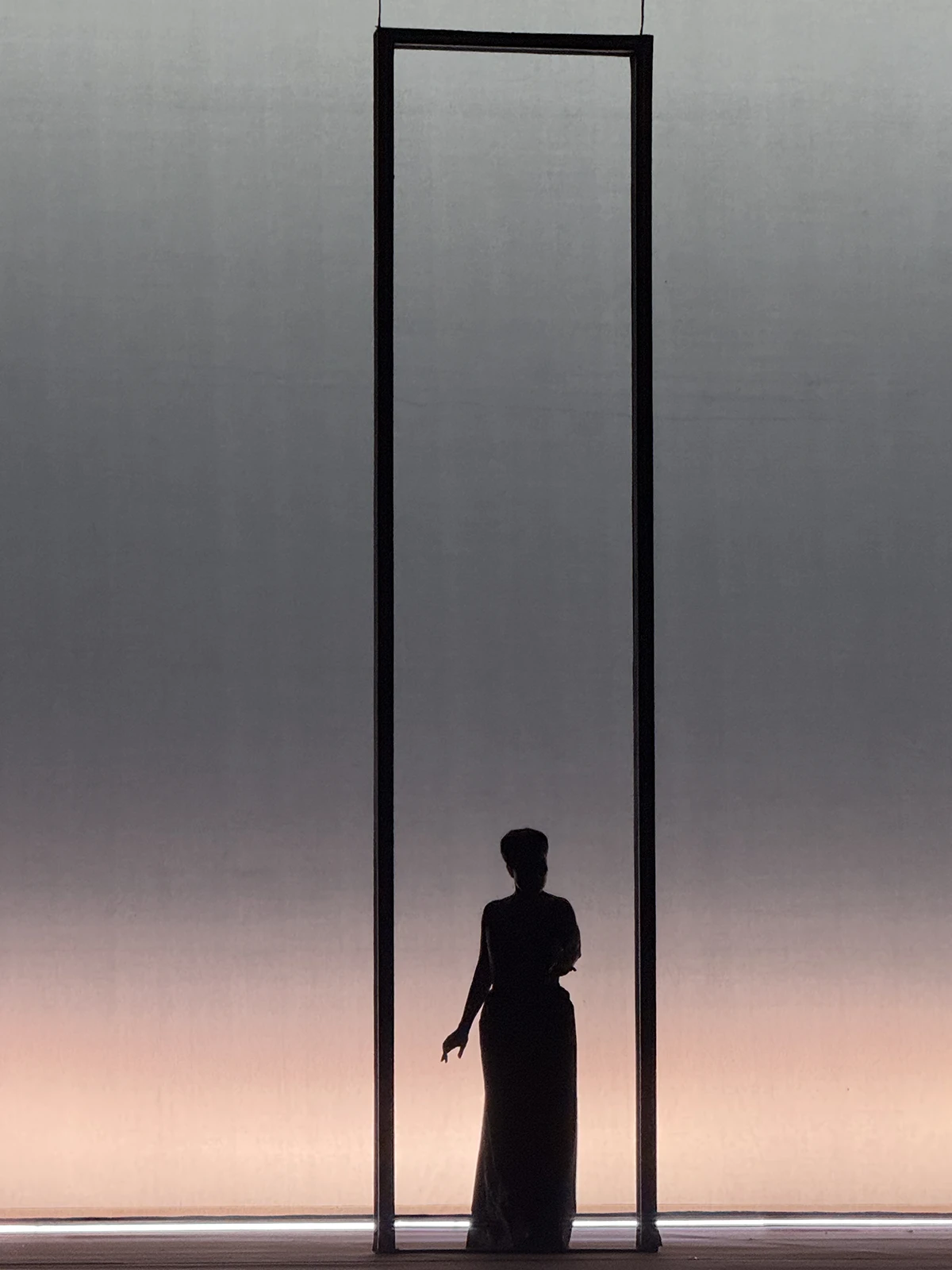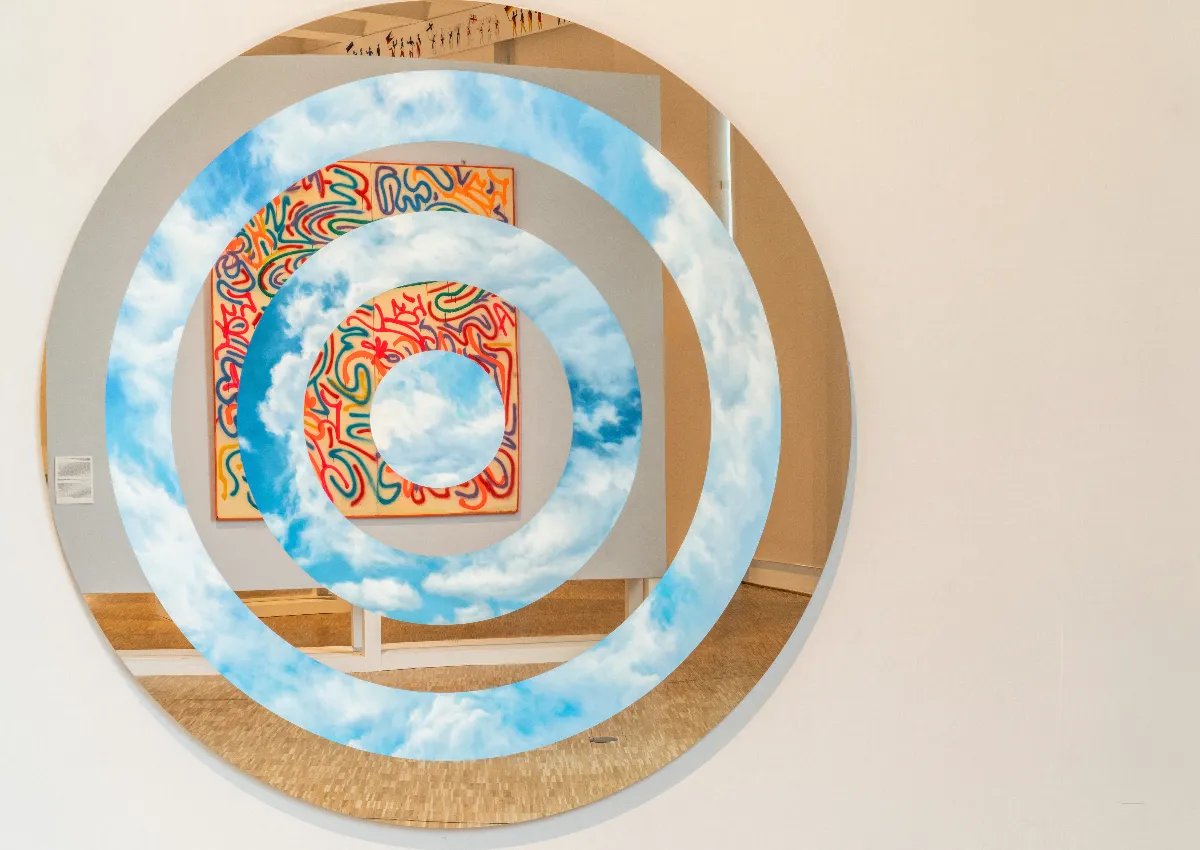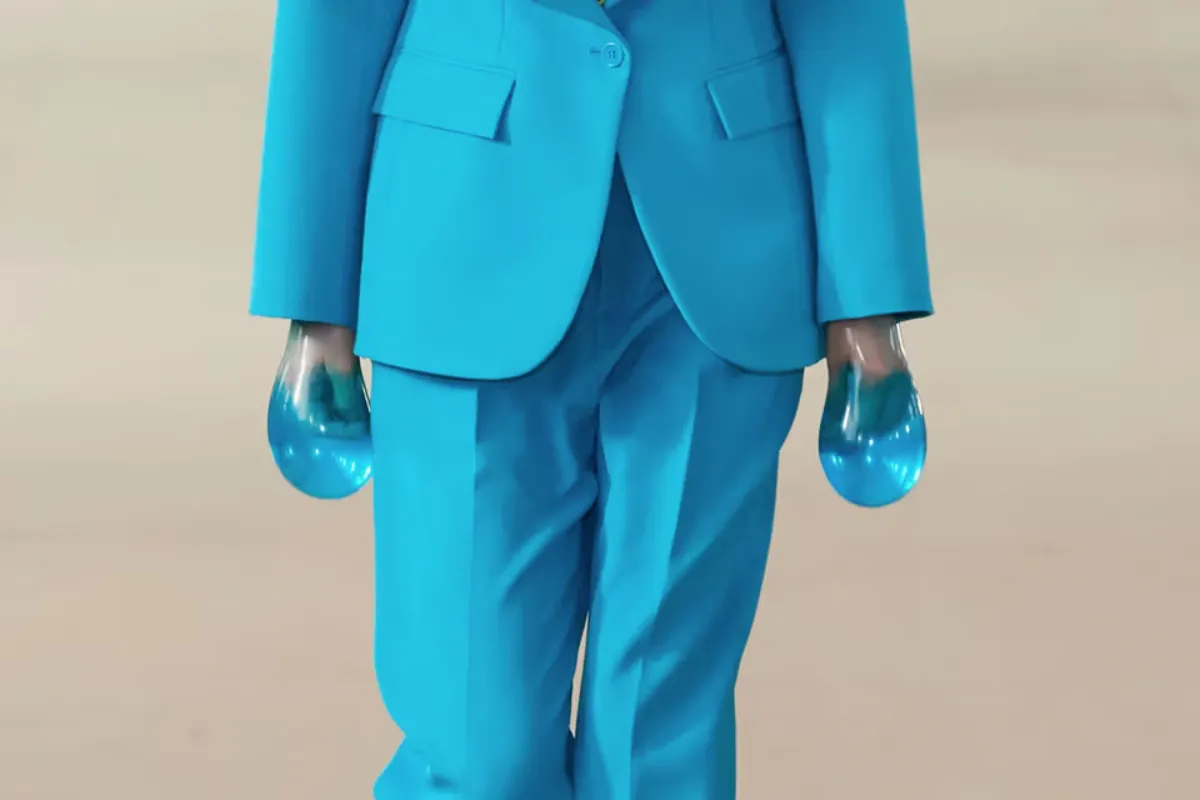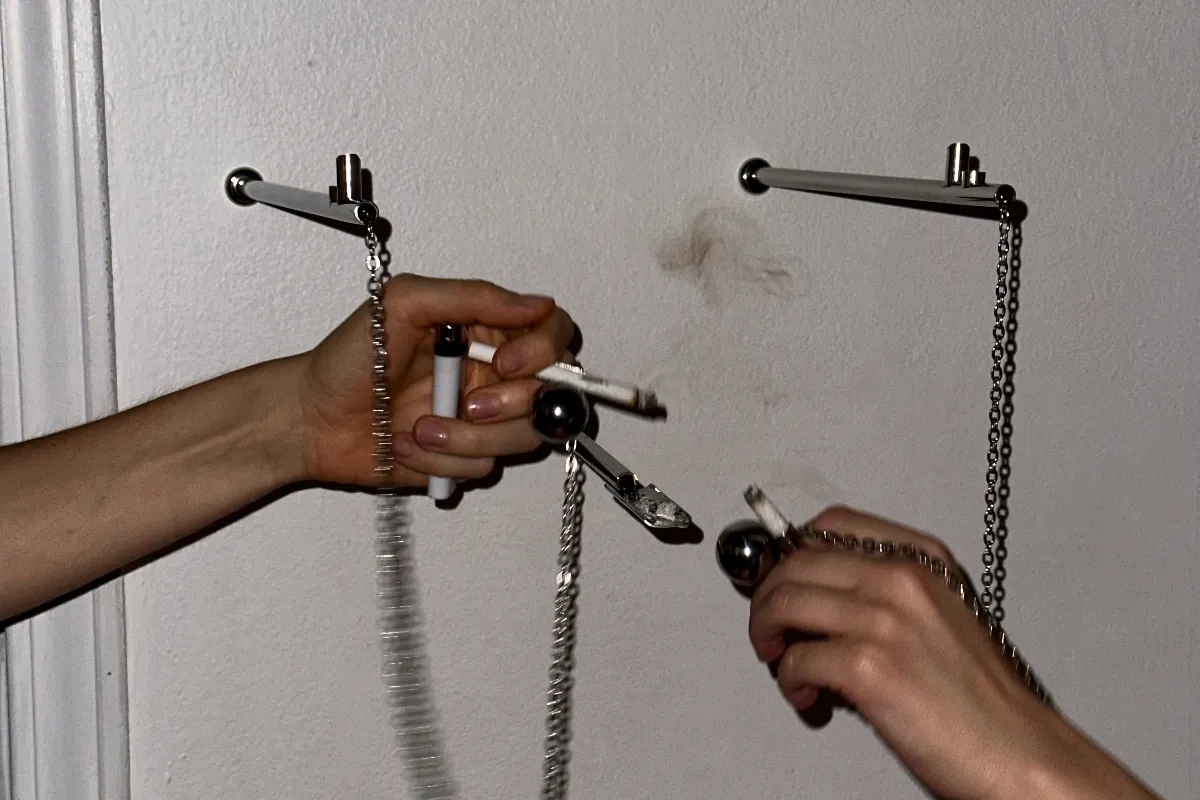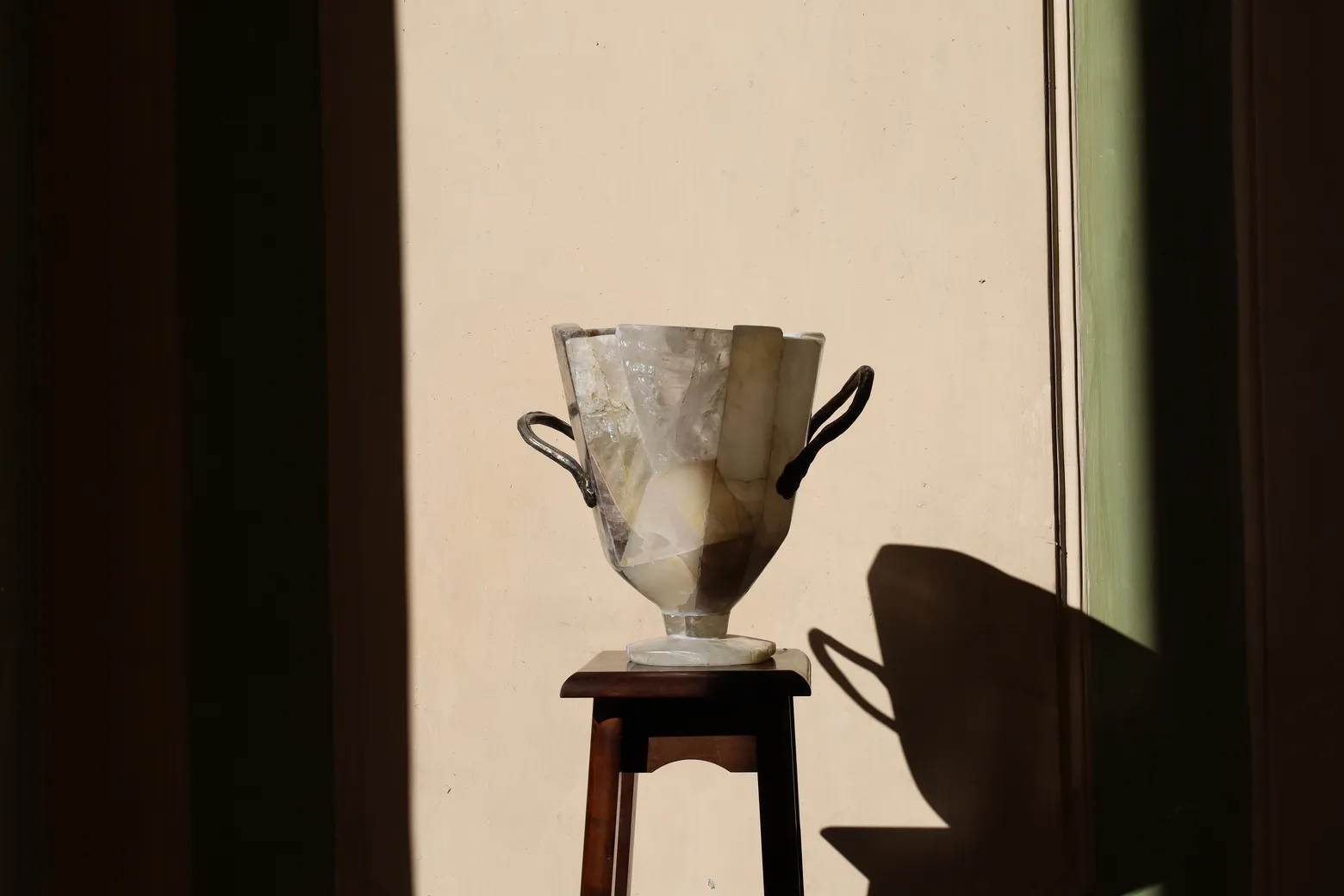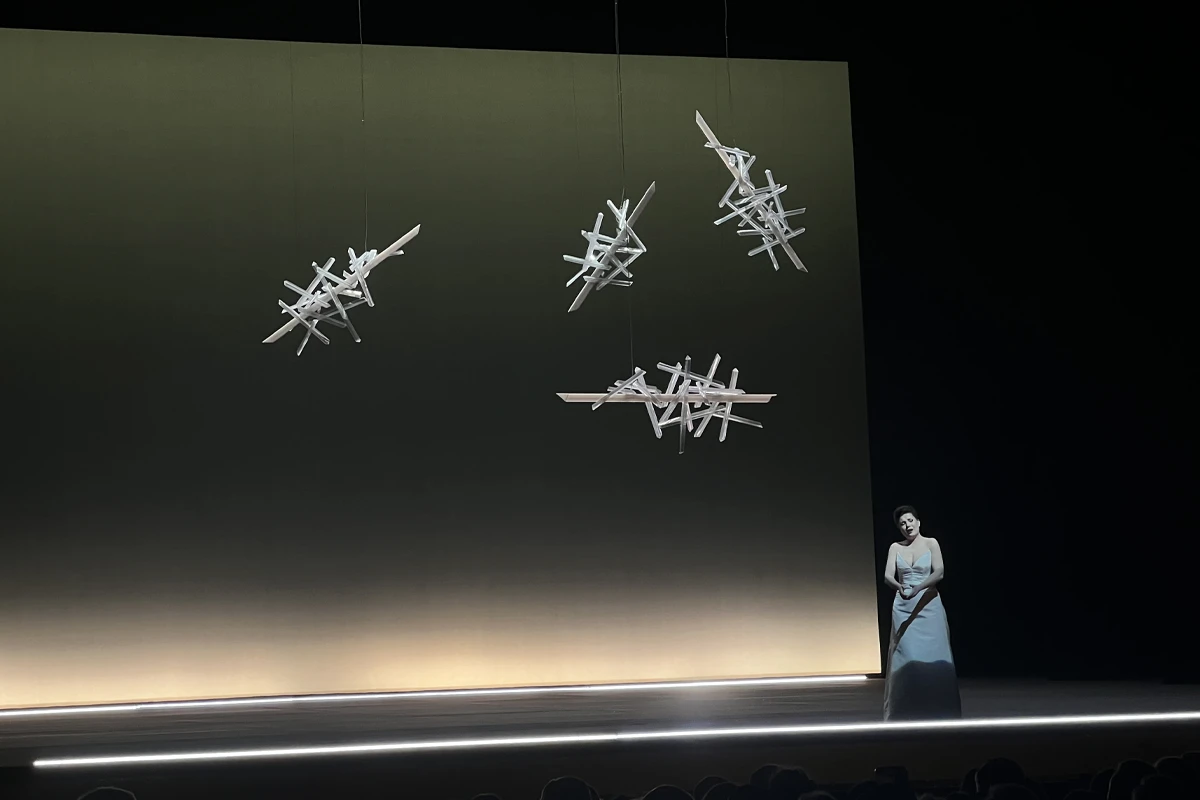
An interview with Robert Wilson: he took a pen and draw an onion made of light
Robert Wilson x Michelangelo: La Pietà Rondanini in Mother, the opening exhibition for Salone del Mobile 2025: he took a pen and draw an onion made of light
Robert Wilson for Salone del Mobile: Mother
In the lobby of a Milanese hotel that overlooks the city’s central station – the site of the 2025 work Mother by American theater and visual artist Robert Wilson – the creative looks at a pen drawing of an onion that he has created. He explains his process behind reframing Michelangelo’s Pietà Rondanini, which lies at the heart of this exhibition. Crafted during the final years of the Renaissance artist’s life, the statue reflects a moment when Michelangelo was confronting his own mortality. The use of form and shape marks the convergence of death, pain, and compassion in the artist’s life. Wilson’s approach, done in collaboration with Salone del Mobile, open the year’s events.
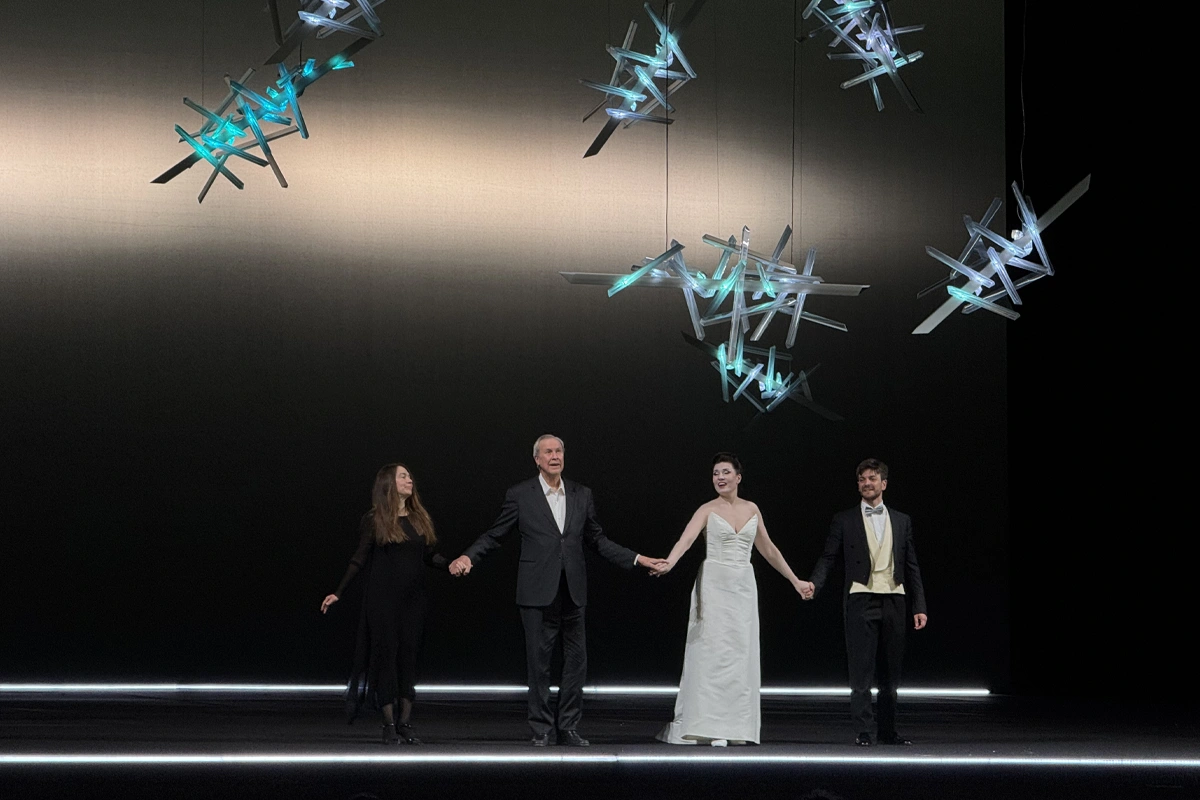
On Monday the 7th, Teatro alla Scala hosted the inaugural evening of Salone del Mobile – The Night Before – Chairs, Objects, Opera. Curated by Robert Wilson, the event merged chairs, objects, and opera into a unique artistic experience. The Teatro alla Scala Orchestra, conducted by Maestro Michele Spotti, along with soprano Marina Rebeka, paid tribute to Italy’s composers.
Listening and Seeing: the universality in both Michelangelo’s sculpture and Wilson’s work
“Before coming to Milan, I was in the north of Holland making a work about listening to nature. You don’t hear noises from the street the way you’d hear it if you’re in the city. There are birds and grass that move and make a sound. You hear your heart and your breathing. When I was there, I couldn’t concentrate on what I was hearing. I was so focused on what I was seeing. I had to force myself to hear, but that’s in my nature. That’s why all my early works were without text – they were just visual. It’s one reason I’ve had success in working across global regions: there’s almost no need for translation because the work was visually constructed.”
This ability to communicate without relying on words is what creates a universality in both Michelangelo’s sculpture and Wilson’s work. It’s a human experience – a connection that is felt, not explained.
Milan as a Global Stage: one point in Wilson’s global career
Milan is just one point in Wilson’s global career, having presented his works in all corners of the world from Estonia and Iran to Brazil and Paris. Nevertheless, his American background remains foundational to his body of work. He reminisces about his childhood in Waco, Texas, saying,
“Many years ago, when I was in Taiwan and I had a concert with a violinist and I went back and thanked her for her performance. I learned that she was from Brooklyn. I said, ‘What did you think about when you were playing?’ She responded, ‘Well, the Brooklyn Bridge is always in my mind. And in your work?’
“I replied, ‘The landscape of Texas is in all my work.’ If I had been living in Brooklyn it wouldn’t be the same. There were these big skies in Texas and all my plays are somehow a reflection of that landscape.”
Observing the World: real people, their movements
Although Wilson’s works may seem fantastical, they are built on a foundation of grounded observation he has developed through a candid study of real people, their movements, and the way they experience the world.
“My first works were written with a deaf, mute boy. He understood the world through visual signs and signals. Because he didn’t hear, he was more aware of these almost imperceptible movements that you and I are not focused on or don’t see because we are hearing.
What happens in the blink of the eye? That is a way of seeing. Maybe it’s a moment you’re dreaming or a negative image, but it’s a part of seeing.”
This heightened sensitivity to the world’s unnoticed details informs much of his work, allowing him to explore the fleeting moments and subtleties that shape our perception.
Wilson has gone on to test the stamina of reality
Referring to the acuity the boy developed, Wilson goes on to remark:
“I was not interested in people displaying skills. You don’t have to sing and hit a high C or jump in the air and land on pointe. I tried to find situations where people didn’t have to be something other than who they were. That’s a part of the fascination of any great, trained actor – they can be comfortable with themselves on a stage in front of an audience.”
Wilson has gone on to test the stamina of reality, having staged works lasting from twelve hours to seven days and experimenting with and investigating how time and space can become fluid for the audience:
“If you couldn’t sleep at night you could go at three in the morning and watch the play. It’s like going to a park: you could sit in the park and watch people walking by or read a book or listen to the birds.”
By drawing from the way people interact with time – whether through moments of stillness or activity – Wilson works with the organic flow of life, inviting audiences to experience theater as they would experience the world around them.
Robert Wilson: the collaboration with Salone del Mobile
Wilson’s relationship with Salone del Mobile has lasted for decades, including projects like Stanze e Segreti (2000) at the Rotonda della Besana. Reflecting on his subsequent years of collaboration with the organization, he says,
“Some days you open a window or a door and see something special that is not there every day. Our communities have such doorways or windows.”
Salone del Mobile brings these opportunities to Milan every year, opening new creative vistas for artists and audiences alike.

Italy’s cultural institutions have historically been a locus for Wilson’s work
While discussing his career in the hotel lobby, a young costume designer from La Scala drops by to show him some sketches for a retrospective that he wants to do. Wilson, admiring the work in his hands, gives a chuckle and quips,
“The first time I worked at La Scala, I did Salomé with Montserrat Caballé. I was booed. I didn’t want to go out for the applause because their protest was quite violent. The Italians are emotional – when they don’t like something, they express it. Montserrat Caballé had a triumph there, the audience cheering, ‘Bravo! Bravo!’ She said, ‘Come with me and it won’t be so bad! Some years they booed me too.’”
Despite that initial display of displeasure, he has continued to practice in Italy. Mother, which will inaugurate Salone del Mobile 2025, comes from a perspective that is “like an onion.” Wilson remarks esoterically as he draws concentric circles on a notepad in front of him. He is quiet as he traces the nested structure the work takes on:
“You have to try to look at the whole onion, but then you can take the whole onion apart, layer by layer.”
A Shared Structural Vision: Stabat Mater, composed by Arvo Pärt
Alongside Wilson’s visual work will be the music of Stabat Mater, composed by Arvo Pärt. Wilson refers back to the onion structure on the table and begins to draw another concentric form saying,
“Arvo Pärt wrote his music with this same structure. My visual work does this as well. We think alike. This is a classical structure. Beethoven used it. Wagner used it. Shakespeare used it. King Lear says here…”
Wilson points to the center of the form,
“‘I shall go mad!’ It’s the center line.”
About Robert Wilson
Robert Wilson is a theater and visual artist whose work combines movement, light, sound, and design. His work Mother, part of Salone del Mobile 2025’s inaugural event, will run from April 6 – May 18, 2025 at Castello Sforzesco in Milan.
In the 1960s, Bob Wilson founded the Byrd Hoffman School of Byrds in New York, where he developed his early experimental works. His notable productions include Deafman Glance (1970), A Letter for Queen Victoria (1974–1975), and Einstein on the Beach (1976) with Philip Glass. Wilson has been honored with the Venice Biennale Golden Lion and the Olivier Award. He is a member of the American Academy of Arts and Letters and the German Academy of Arts.
Annalise June Kamegawa
